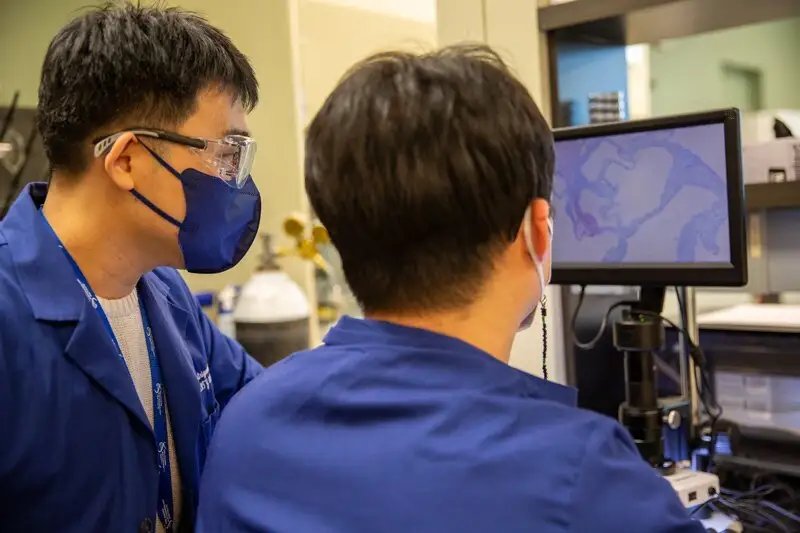Jun 14, 2022Apiaceous vegetables can reduce toxins from cigarette smoke, air pollution
While air pollution is on the rise throughout the world, Jae Kyeom Kim, University of Delaware assistant professor for the Department of Behavioral Health and Nutrition, discovered an achievable solution that may mitigate the effect of air pollutants in our bodies by increasing daily intake of apiaceous vegetables.
Apiaceous vegetables are a family consisting of vegetables such as celery, carrots, parsnips, and parsley. Kim’s research article, published in the Journal of Nutritional Biochemistry, investigates how these vegetables protect the body from accumulation of acrolein, an irritant to the lungs and skin with a strong unpleasant odor, abundantly found in cigarette smoke and automobile exhaust.
Through a series of tests, Kim and his team analyzed how apiaceous vegetables, which are high in phytonutrients, mitigated acrolein-induced toxicities. The results portrayed how oxidative stress, triggered by acrolein, can be reduced and its impacts mitigated.
“Kim’s research discovered that apiaceous vegetables supported detoxification through an increase in antioxidant enzyme activity,” Trabulsi said. “The results suggest that apiaceous vegetables may provide protection against acrolein-induced damages and inflammation because in the liver, the vegetables enhance conversion of acrolein into a water-soluble acid for bodily excretion.”
The next step was to determine a reasonable dosage amount for humans. Looking forward, Kim plans to integrate human intervention trials.
“When we calculated this, we determined the actual daily calorie amount of apiaceous vegetables for humans is roughly 1 and 1/3 cups per day,” Kim said. “It doesn’t require a high intake to see a difference, and this is an achievable amount in daily life.”
Kim and his team stress the importance of implementing behavioral changes in diet as a solution to combat the buildup of toxicants derived from air pollution.
“Research has identified that it is the totality of nutrients in fruits and vegetables that support beneficial health outcomes, rather than a single nutrient,” Trabulsi said. “Focusing on a healthy whole food diet is more impactful than relying on individual supplements.”
– Colin Heffinger, University of Delaware; Photo at top: Jae Kyeom Kim (left), assistant professor, conducts nutrition research with postdoctoral researcher Jeonghoon Pan. Photo by Ashley Barnas.















